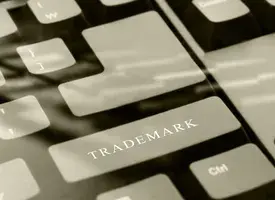TRADEMARKS FILING AND PROSECUTION JAMAICA
A trademark is a sign that is registered to distinguish a product or service in commerce. There are other types of signs used in trade that can also be registered with the Jamaica IP Office, such as logos, designations of origin, geographical indications, collective marks and certification or guarantee marks.
In order to legally protect a trademark or other sign used in commerce, it is necessary to register it with the Jamaica IP Office. In Jamaica, trademark protection is granted according to the provisions of The Trade Marks Act, 1999 (Act No. 32 of 1999), Jamaica
Trademark in Jamaica may be designated by the following symbols:
- ® (for a registered trademark)
- ™ (for an unregistered trademark)
A trademark is typically a name, word, phrase, logo, symbol, design, image, or a combination of these elements. There is also a range of non-conventional trademarks comprising marks which do not fall into these standards categories, such as those based on colour, smell, or sound.
A trademark provides protection to the owner of the mark by ensuring the exclusive right to use it to identify goods or services, or to authorize another to use it in return for payment. Trademark protection also hinders the efforts of unfair competitors, such as counterfeiters, to use similar distinctive signs to market inferior or different products or services.
The owner of the registered trademark may initiate legal proceedings for trademark infringement to prevent unauthorized use of that trademark, and can license it to the third parties, sell it in return of sum, use it raise equity for business undertakings.
| Relevant office | Jamaica Intellectual Property Office (JIPO) |
| Filing principle | First to use |
| Nice classification | YES |
| Paris convention | YES |
| Madrid system | YES |
| Multi class system | YES |
| Documents required for filing a trade mark application | Name and address of the applicant, clear representation of the trademark, list of goods and/or services and Simply signed Power of Attorney. |
| Prosecution process | Filing, examination, publication, registration, renewal |
| Registration term | 10 years from the date of application. |
| Renewal term | 10 years |
Trademark searches in Jamaica
It is advisable to conduct a trademark search prior to filing a trademark application to ascertain the availability of trademarks, existence of prior identical/similar marks on the register etc., so as to avoid any objection and opposition with respect to the mark.
A trademark search in Jamaica can be conducted for word mark, numbers, images, etc. It is advisable to conduct comprehensive trademark clearance search in Jamaica to ascertain availability of the proposed mark and also to overcome any objection and opposition with respect to mark later on.
Along with trademark search, it is also advisable to do a comprehensive company search and domain search of the proposed trademark in Jamaica.
Filing trademark applications in Jamaica
A person may file multi-class or single class trademark application in Jamaica.
Trademark application can be filed in the following categories:
- Ordinary Applications
- Convention application (claiming priority from a convention country)
Ordinary application in Jamaica
Ordinary trademark applications filed in Jamaica are applications without claiming any priority.. However, the trademarks act also lays down provisions regarding the filing of priority applications, wherein priority of the mark can be claimed in the said mark filed in a convention country.
Priority trademark applications in Jamaica /Convention trademark applications Jamaica:
A priority trademark application may be filed in Jamaica. A priority trademark application should be filed in Jamaica within 6 months after the date on which the application was made in the convention country.
Paris convention
The Paris Convention for the Protection of Industrial Property, signed in Paris, France, on March 20, 1883, established a Union for the protection of industrial property. It offers national treatment to the applicant residing in the member country of the union, in other words. National treatment is a very important concept and is essential for successfully achieving the fundamental aim of the Paris Convention. The idea is to provide equal treatment to applications from member countries, in a given member country and not to differentiate between the nationals of member countries for the purpose of grant, and protection of industrial property. Priority application can be filed in Jamaica within six months after the date on which the application was made in the Convention Countries.
Trademark classes for goods and services
Jamaica follows the nice classification of classes. Intellectual property office of Jamaica uses the nice classification of classes that groups together similar goods or services into 45 different classes. Classes 1 to 34 are assigned for the goods and classes 35 to 45 are assigned for the services. Each class contains well defined list of terms and cover all the goods and services.
Trademark Examination in Jamaica
Once the application for the registration is submitted it goes through the examination process which consists of examination on the basis of Absolute and relative grounds (conflicts with an earlier, pre-existing right) of refusal.
Non-Registrable Marks
11.— (1) Subject to subsection (2) the following are not registrable under this Act—
(a) signs, which do not satisfy the definition of “trade mark” appearing in section 2(1);
(b) trade marks which are devoid of any distinctive character;
(c) trade marks which consist exclusively of signs or indications which may serve in trade, to designate the kind, quality, quantity, intended purpose, value, geographical origin, the time of production of goods or of rendering of services or other characteristics of goods or services;
(d) trade marks which consist exclusively of signs or indications which have become customary in the current language or in the bona fide and established practices of the trade.
(2) A trade mark shall not be refused registration by virtue of paragraph (b), (c) or (d) of subsection (1) if, before the date of application for registration, it has in fact acquired a distinctive character as a result of the use made of it.
(3) A sign shall not be registered as a trade mark if it consists exclusively of—
(a) the shape which results from the nature of the goods themselves;
(b) the shape of goods which is necessary to obtain a technical result; or
(c) the shape which gives substantial value to the goods.
(4) A trade mark is not registrable if—
(a) it is contrary to public policy or to accepted principles of morality;
(b) it is of such a nature as to deceive the public as to the nature, quality or geographical origin of the goods or services or otherwise;
(c) it is a trade mark to which section 12 refers;
(d) its use is prohibited in Jamaica by any law;
(e) the application is made in bad faith;
(f) it is of such a nature as to—
(i) disparage persons (living or dead) or institutions or beliefs; or
(ii) falsely suggest a connection with such persons, institutions or beliefs.
Protected Emblems
12.— (1) A trade mark which consists of or contains a representation of the Coat of Arms of Jamaica, national flag of Jamaica and other national symbols shall not be registered.
(2) A trade mark shall not be registered in the cases specified in sections 50 and 51.
Existence of Earlier Mark
13.— (1) A trade mark shall not be registered if—
(a) it is identical with an earlier trade mark; and
(b) the goods or services for which the trade mark is applied for are identical with the goods or services for which the earlier trade mark is protected.
(2) A trade mark shall not be registered if—
(a) it is identical with an earlier trade mark and the goods or services in relation to which application for registration is made are similar to those for which the earlier trade mark is registered; or
(b) it is similar to an earlier trade mark and the goods or services in relation to which application for registration is made are identical with or similar to those for which the earlier trade mark is protected, and there exists a likelihood of confusion on the part of the public, including the likelihood of association with the earlier trade mark.
(3) A trade mark which is identical with or similar to an earlier trade mark and is to be registered in relation to goods or services that are not similar to those for which the earlier trade mark is protected, shall not be registered if, or to the extent that, the earlier trade mark has a reputation in Jamaica and the use of the later mark, without due cause, would take unfair advantage of, or be detrimental to, the distinctive character or the reputation of the earlier trade mark.
(4) A trade mark shall not be registered if, or to the extent that, its use in Jamaica is liable to be prevented—
(a) by virtue of any law (in particular the law of passing off) protecting an unregistered trade mark or other sign used in the course of trade; or
(b) by virtue of an earlier right other than those referred to in subsections (1) to (3) or paragraph (a) of this subsection, in particular, by virtue of, the law relating to copyright or rights in designs.
(5) A person who is entitled under this section to prevent the use of a trade mark is referred to in this Act as the proprietor of an earlier right in relation to the trade mark.
(6) Nothing in this section prevents the registration of a trade mark where the proprietor of the earlier trade mark or other earlier right consents to the registration.
Trademark Opposition in Jamaica
Any interested person, within 2 months from the date of publication of the mark in the Official Bulletin, has the right to file to the Controller an opposition to the registration of the mark.
Trademark registration in Jamaica
The mark will be registered for a period of 10 years from date of application, and the registration certificate is issued.
Trademark Renewal in Jamaica
You can renew your trademark right by filing a request for renewal six (6) months before the trademark right expires.








